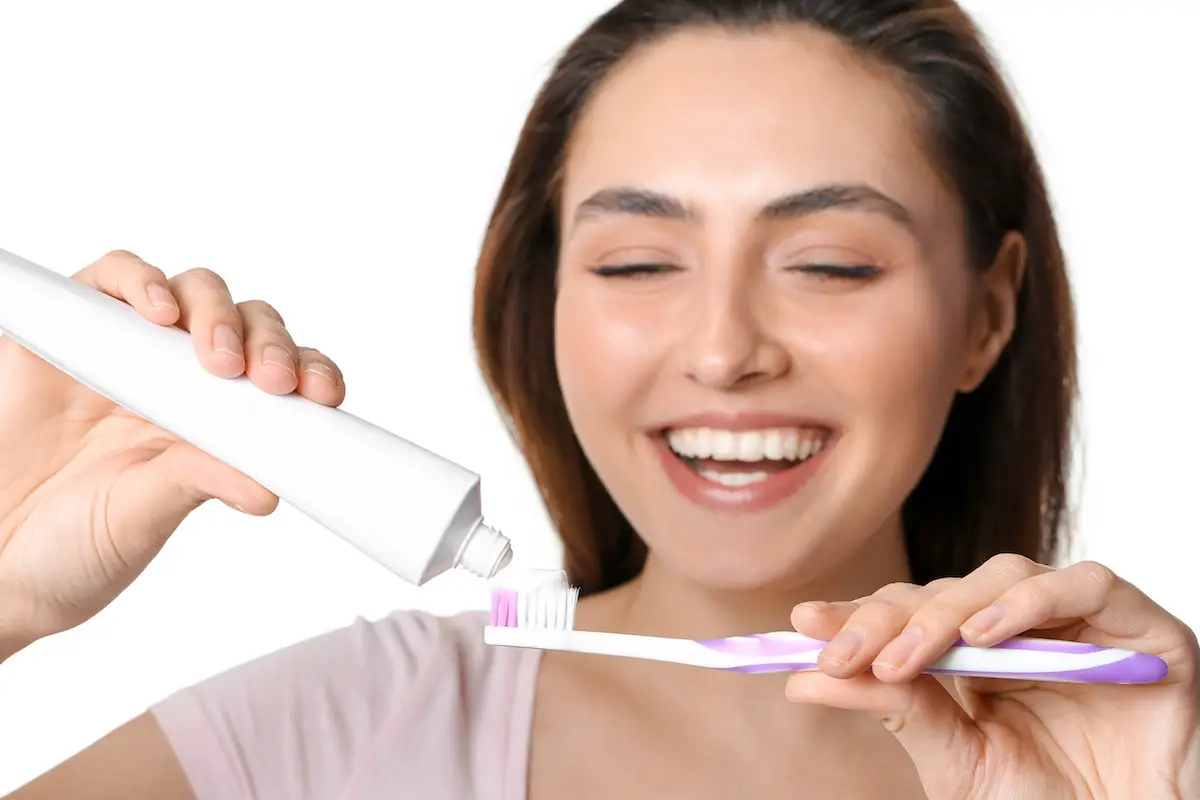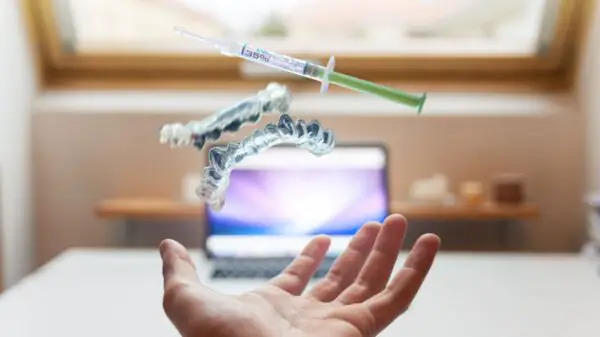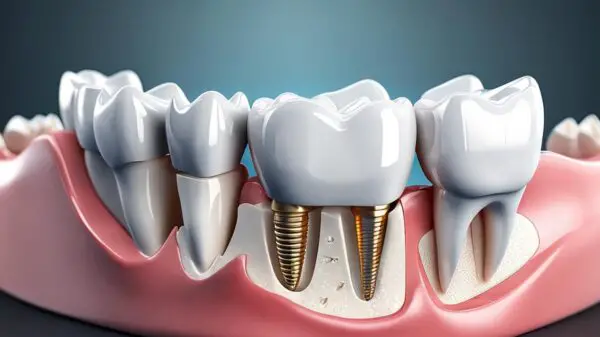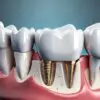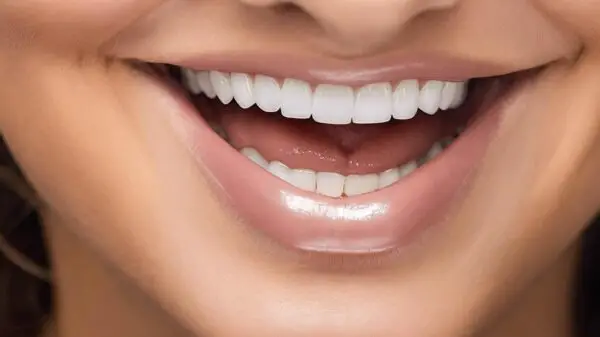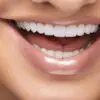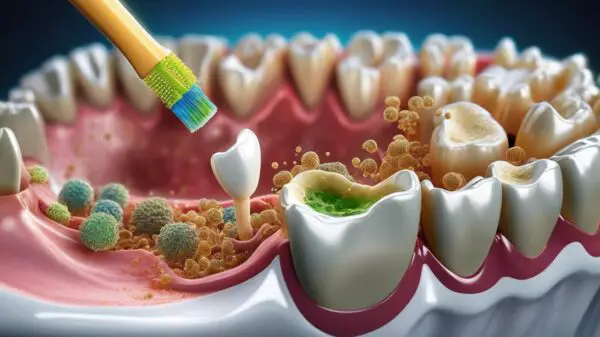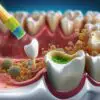Natural Ways to Get Rid of Dry Mouth
Do you suffer from dry mouth? It’s a common condition that can be caused by many things, from medication to dehydration. While it’s not usually a serious problem, dry mouth can be uncomfortable and make it difficult to speak or eat. Fortunately, there are several ways you can naturally get rid of a dry mouth. So how can you naturally to get rid of dry mouth? Here are 6 ways to naturally to get rid of dry mouth.
- Drink plenty of water throughout the day to stay hydrated
- Chew sugar-free gum or suck on hard candy to stimulate saliva production
- Avoid tobacco products
- Limit your intake of caffeine and alcohol
- Use a humidifier in your home or office to add moisture to the air
- Practice good oral hygiene by brushing and flossing regularly
So, now that you have an idea of the different ways to naturally to get rid of dry mouth, let’s examine each in greater detail, as well as other useful.
1. Drink plenty of water throughout the day to stay hydrated
Staying properly hydrated is a key component of maintaining good health. Our bodies are primarily composed of water, so it’s essential that we replenish our supply on a consistent basis. Drinking plenty of water throughout the day helps to flush toxins from the body for improved organ functioning, boosts mental alertness and focus, and helps to regulate body temperature. As an added bonus, drinking enough water can help to curb your appetite and increase weight loss. So make sure you don’t forget to drink plenty of water throughout the day—it’s essential for your health!

2. Chew sugar-free gum or suck on hard candy to stimulate saliva production
If you are dealing with a dry mouth, stimulating saliva production can be a lifesaver! Chewing sugar-free gum or sucking on hard candy are simple solutions that can help boost saliva flow. And these solutions can be taken anywhere – whether at work, school, or even on the go! Sucking on hard candy has the added benefit of containing sweeteners that can enhance taste buds while remaining useful in promoting saliva production. So the next time your mouth is feeling dry, reach into your pocket for some gum or candy and enjoy a sweet relief.
3. Avoid tobacco products, including cigarettes, cigars, and chewing tobacco
It almost goes without saying that tobacco products can be extremely hazardous to your health. From the dangers of lung cancer and heart disease to the potential for oral cancers and stroke, cigarettes, cigars, and chewing tobacco are incredibly dangerous and should be avoided at all costs. The best way to ensure your long-term health is to make sure you don’t start using any of these products; it’s always harder to stop a habit than it is to avoid getting into it in the first place. In addition, secondhand smoke from even one cigarette can cause serious health problems for those who are exposed to any amount of it, so if your friends or family members Smoke, tell them about the risks and make sure there’s an area with good ventilation when they do light up.
4. Limit your intake of caffeine and alcohol, which can contribute to dry mouth
Dry mouth can be an awkward and uncomfortable feeling, as well as a sign of a more serious health condition. It’s important to take precautions to help prevent or reduce its occurrence. One of the best ways is to limit your intake of substances known to contribute to dry mouth, such as caffeine and alcohol. Reducing caffeine consumption limits the body’s natural diuretic response, resulting in less frequent urination and dehydration potential. Alcohol also has a significant dehydrating effect and reduces the body’s most natural method for keeping you hydrated – saliva production. In the long term, limiting your intake of both substances can contribute to better overall oral health and comfort.
5. Use a humidifier in your home or office to add moisture to the air
The use of humidifiers in your home or office can provide many benefits. Humidifiers can help alleviate symptoms associated with dry air, such as scratchy eyes and nasal congestion. Furthermore, humidified air can reduce static electricity, preserve wooden furniture and artwork, and can even reduce dust levels in the home. Additionally, humidity levels between 40-60% can make room temperatures feel more comfortable without needing to increase thermostat settings. That results in lower energy bills for homeowners! Installing a humidifier is an effective and easy way to upgrade your home comfort system while adding some additional health and financial benefits too.
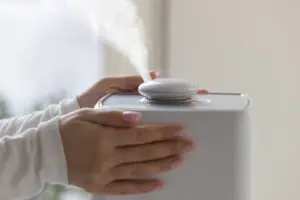
6. Practice good oral hygiene by brushing and flossing regularly
Many people neglect to take good care of their teeth, putting them at risk for oral health issues. It’s important to practice good oral hygiene by brushing and flossing regularly. Doing so removes plaque, which can build up on the surfaces of teeth and cause cavities and gingivitis. Flossing is especially important as it reaches areas between teeth that are difficult to access with a toothbrush. Additionally, brushing with fluoride toothpaste helps strengthen enamel and reduces the risks of cavities. Ultimately, taking the time to brush and floss twice a day can have great benefits in helping maintain healthy teeth and gums!
Related Questions
What causes dry mouth?
Dry mouth is often caused by dehydration, medication use, aging, certain medical conditions, hormonal changes in women during pregnancy and menopause, and some types of cancer treatments. Additionally, lifestyle choices such as smoking or drinking excessive amounts of caffeine can also contribute to dry mouth. It’s important to speak with your doctor if you are experiencing dry mouth to determine the underlying cause and treatment options.
How can I reduce dry mouth?
The best way to reduce dry mouth is to practice good oral hygiene, such as brushing and flossing regularly. Additionally, limiting your intake of caffeine and alcohol can help prevent dehydration which causes dry mouth. You can also use a humidifier in your home or office to add moisture to the air and make room temperatures more comfortable. Lastly, if you are taking medications that may contribute to dry mouth, it’s important to speak with your doctor.
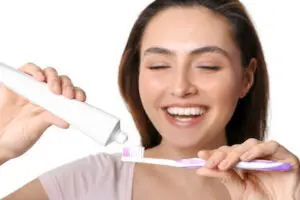
What medications cause dry mouth?
Certain medications may cause dry mouth as a side effect, including some antihistamines, decongestants, diuretics and antidepressants. Additionally, many cancer treatments such as chemotherapy and radiation too. If you’re taking any of these medications and experiencing dry mouth, it’s important to speak with your doctor about other treatment options.
How can I reduce my caffeine and alcohol intake?
If you find yourself drinking too much caffeine or alcohol, it’s important to take steps to reduce your intake. Start by replacing caffeinated drinks with water, herbal teas, or decaffeinated coffee and tea. Additionally, limiting the number of alcoholic beverages you consume can also help. Consider setting goals for yourself, such as only having one caffeinated beverage a day, or avoiding alcoholic beverages during the week. Making small changes like this can help you reach your goals and reduce your overall consumption of caffeine and alcohol.
How does gum or hard candy stimulate saliva production?
Chewing gum or hard candy can help stimulate saliva production by increasing the flow of saliva into the mouth. The act of chewing helps stimulate glands in your head and neck which secrete saliva. Additionally, some types of gum and candy contain ingredients that act as artificial sweeteners, which can also help to increase saliva production in your mouth.
In Closing
By following these simple tips, you can work to reverse your dry mouth problems. If these aren’t doing the trick though, it’s best to reach out to your dentist because sometimes dry mouth has to be handled by the professionals. Remember to drink plenty of water throughout the day, chew sugar-free gum or enjoy hard candy, avoid tobacco products, limit your intake of caffeine and alcohol, use a humidifier, and practice good oral hygiene. These easy steps will help keep your mouth moist and prevent dryness.



